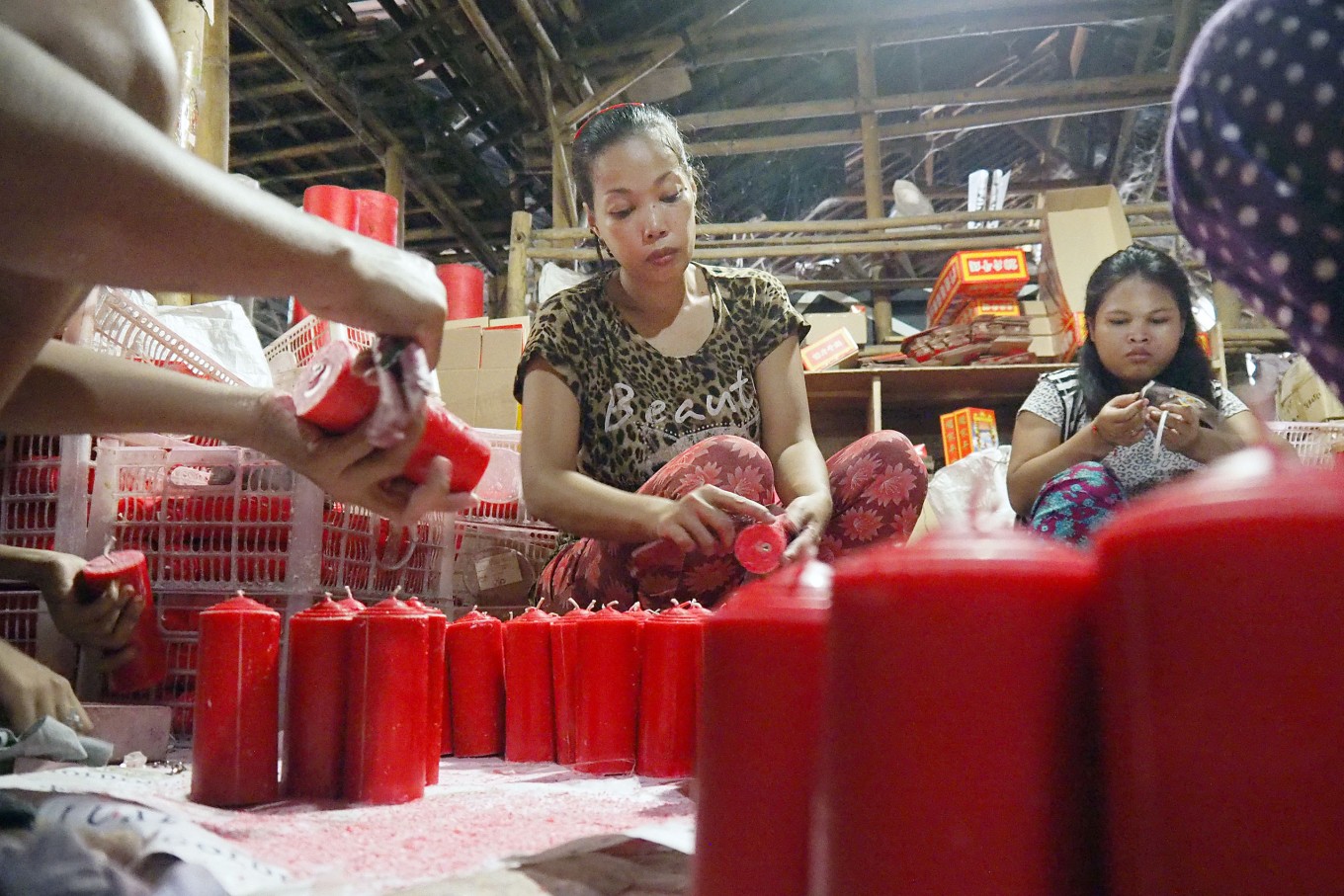Popular Reads
Top Results
Can't find what you're looking for?
View all search resultsPopular Reads
Top Results
Can't find what you're looking for?
View all search resultsCloser look at Chinese New Year preparations
Afew days before the celebration of Chinese New Year, the distinctive fragrance of hio (incense) pervaded the air outside a factory in Kampung Melayu Barat, Tangerang, Banten.
Change text size
Gift Premium Articles
to Anyone
A
few days before the celebration of Chinese New Year, the distinctive fragrance of hio (incense) pervaded the air outside a factory in Kampung Melayu Barat, Tangerang, Banten. Workers busily engaged in their respective tasks, from grinding aromatic materials to drying incense sticks, all done manually.
Apart from incense, phu — paper to be used as good-fortune symbols — was also produced.
“Phu paper has to be replaced annually as it doesn’t last a long time, so people mostly order phu along with hio,” said Beno, 21, as he arranged paper to dry in the sun. Beside the incense maker stood a candle factory. In the same way, workers vigorously carried out their chores, from heating basic materials to molding red candles, fitting them with wicks and packaging the products.
“When people can smell hio and candles around here, Imlek is nearing,” said Yati, 32, who was packing candles ready for sale.
As a historic confectionery center in Tangerang, Ny Lauw home industry also produces dodol (fudge) and kue keranjang (sweet rice cakes). Since 1962, the typical Imlek snack business has been run by three generations. The heat and smoke of wood fires abounded as workers stirred the cake dough until it thickened.
The enthusiasm at welcoming Chinese New Year was also shown by the proprietor of Bio Dhama Kencana temple, Setia Darma, who cleaned all 14 statues at the house of worship. Termed a Kim Sin shower, Setia Darma bathes the statues every year at his residence in Kampung Melayu Barat.
Meanwhile, wayang potehi, a Chinese hand puppet show rarely seen in the modern era, is now being performed for the public at Citraland mall in West Jakarta, every day at 3 p.m. and 6 p.m. until Feb. 11. The play has attracted a lot of visitors, especially senior citizens, as the characteristic form of ethnic Chinese art has become hard to find in the country.











